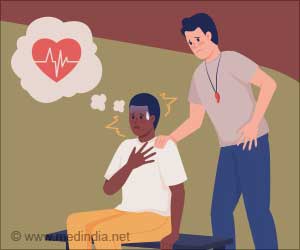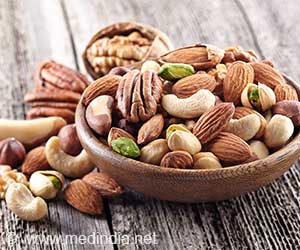Discover how the investigational drug aficamten offers hope and improves exercise capacity for individuals battling hypertrophic cardiomyopathy (HCM).
- Aficamten shows promising results in improving exercise tolerance for HCM patients
- The drug targets obstructive HCM, addressing a critical aspect of the condition
- Ongoing research suggests aficamten could revolutionize HCM treatment, offering new hope to patients
Aficamten for Symptomatic Obstructive Hypertrophic Cardiomyopathy
Go to source).
TOP INSIGHT
Did You Know?
Aficamten increases exercise capacity in HCM patients by enhancing oxygen utilization. #HCM #aficamten #medindia
Understanding Hypertrophic Cardiomyopathy (HCM)
Prevalence and Impact of HCM
HCM affects about 1 in 500 people and is a leading cause of sudden death among young individuals and athletes. It is often caused by inherited genetic mutations that lead to the thickening of the heart muscles, which impairs the heart’s ability to function properly. The obstructive form of HCM, which aficamten targets, further reduces blood flow out of the heart, exacerbating symptoms like shortness of breath and reduced exercise capacity (2✔ ✔Trusted Source
Exercise and the Heart
Go to source).
Current Treatment Options of HCM
Traditional treatments for obstructive HCM include surgical procedures to remove excess heart muscle. In 2022, the FDA approved mavacamten, the first drug designed to address the underlying cause of obstructive HCM. However, mavacamten has limitations, including a risk of heart failure and interactions with several common medications, necessitating intense monitoring for patients.
Aficamten: A New Hope for Hypertrophic Cardiomyopathy
Mechanism of Action of Aficamten
Aficamten is designed to improve heart function by enabling patients with obstructive HCM to utilize more oxygen during physical activities. This capability is crucial for patients, as it enhances their ability to perform daily tasks with less difficulty and reduces the associated risks of severe complications.
Aficamten Enhances HCM Exercise Capacity: Study Insights
The study was a randomized, double-blind Phase 3 trial evaluating the efficacy and safety of aficamten, developed by Cytokinetics, in treating obstructive HCM. Of the 282 adults participating, 19 were enrolled through OHSU, making it the center with the highest enrollment.The trial’s primary endpoint was the measurement of participants’ maximum oxygen uptake during exercise. The results showed that those who took aficamten experienced a significant increase in their peak oxygen use — 1.7 milliliters per kilogram per minute more than the control group who received a placebo. This improvement translates to a better capacity for physical activity, which can reduce the risk of heart failure, the need for heart transplants, and mortality.
Enhancing Exercise Capacity with Aficamten
Aficamten revolutionizes cardiac patient care by enhancing exercise capacity through optimized oxygen utilization. This innovative therapy targets the heart’s efficiency, enabling increased oxygen intake during physical activity. By mitigating symptoms like shortness of breath, Aficamten empowers patients to engage in daily tasks and exercise more comfortably, fostering a higher quality of life and potentially mitigating complications linked to hypertrophic cardiomyopathy.In Summary, the introduction of aficamten marks an exciting development in the treatment of hypertrophic cardiomyopathy. As ongoing research continues to validate its benefits, aficamten could join the ranks of innovative therapies offering new hope to patients with this challenging condition. Dr. Masri expressed optimism about the future, noting that patients now have more treatment options beyond traditional surgical methods and recently approved drugs, enhancing their quality of life and potentially improving clinical outcomes.
References:
- Aficamten for Symptomatic Obstructive Hypertrophic Cardiomyopathy - (https://pubmed.ncbi.nlm.nih.gov/38739079/)
- Exercise and the Heart - (https://www.hopkinsmedicine.org/health/wellness-and-prevention/exercise-and-the-heart)
Source-Medindia
 MEDINDIA
MEDINDIA





 Email
Email










